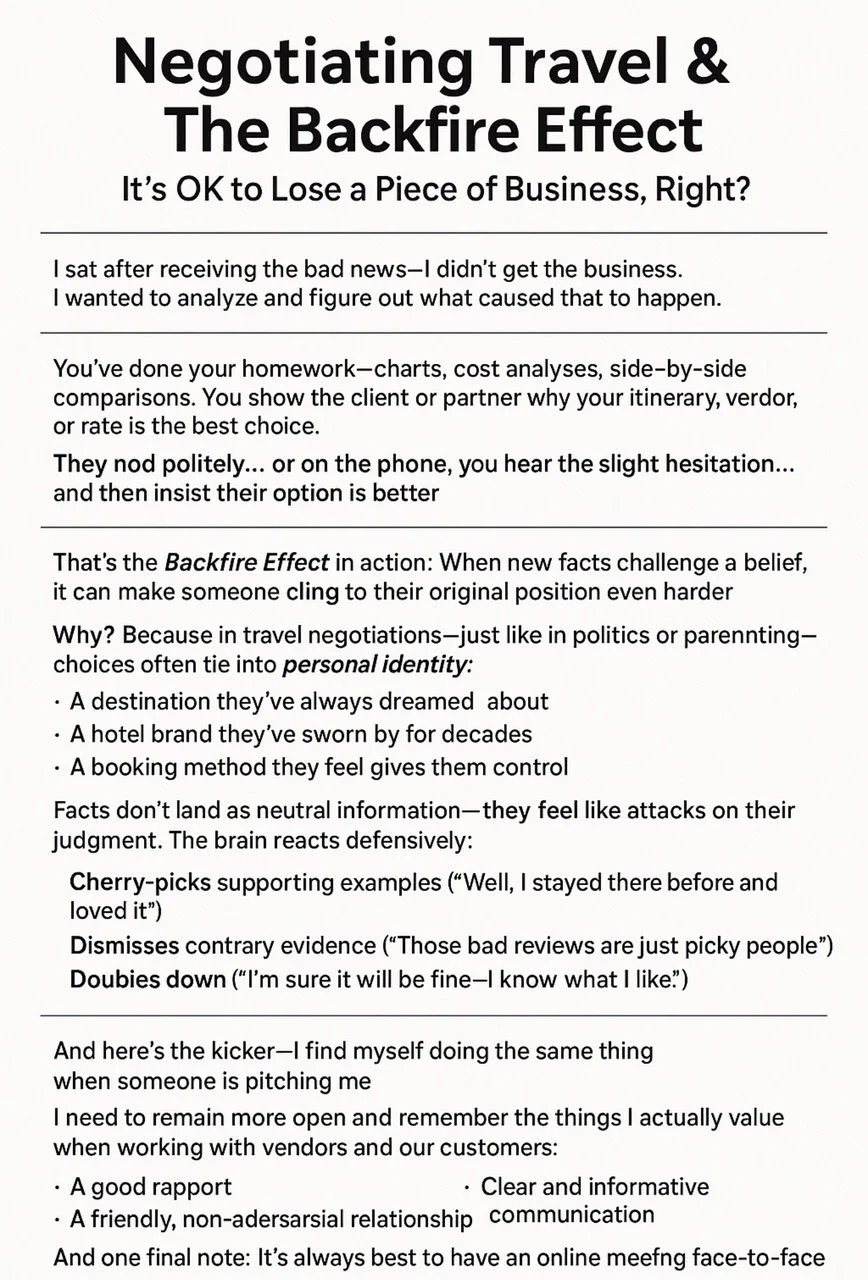I sat after receiving the bad news — I didn’t get the business.
I wanted to analyze and figure out what caused that to happen.
The truth? I may have been so focused on showing the other side my facts, my charts, and my “perfectly reasoned” proposal that I forgot something crucial: people rarely change their minds when they feel they’re being cornered.
You’ve done your homework — charts, cost analyses, side‑by‑side comparisons.
You show the client or partner why your itinerary, vendor, or rate is the best choice.
They nod politely — or better yet, if it’s over the phone, you catch that tiny hesitation in their voice, that fractional pause that says they’re not convinced… even before they say a word.
And then they insist their option is better.
That’s the Backfire Effect in action:
When new facts challenge a belief, it can make someone cling to their original position even harder.
Why?
Because in travel negotiations — just like in politics or parenting — choices often tie into personal identity:
• A destination they’ve always dreamed about
• A hotel brand they’ve sworn by for decades
• A booking method they feel gives them control
Facts don’t land as neutral information — they feel like attacks on their judgment.
The brain reacts defensively:
• Cherry-picks supporting examples (“Well, I stayed there before and loved it”)
• Dismisses contrary evidence (“Those bad reviews are just picky people”)
• Doubles down (“I’m sure it will be fine — I know what I like”)
So what works instead?
Instead of pushing facts harder, shift the dynamic:
1. Ask curious questions
• “What’s most important to you on this trip — relaxation, exploration, or convenience?”
2. Create space for reflection
• “Let’s keep both options on the table and see what fits your vision best.”
3. Invite them into the process
• “If we blend your idea with mine, we might land on the perfect plan.”
And here’s the kicker — I find myself doing the same thing when someone is pitching me.
I need to remain more open and remember the things I actually value when working with vendors and our customers:
• A good rapport
• A friendly, non-adversarial relationship
• Clear and informative communication
Those are the elements that create the kind of trust where deals get done.
They’re not just nice-to-haves — they’re the real foundation of a good working relationship.
And one final note: whenever possible, it’s always best to have an online meeting face‑to‑face. Seeing each other — even virtually — builds rapport, reduces misunderstandings, and often makes it easier to spot the hesitation or concerns before they become deal-breakers.
#JoeKnows #AskRob #GroupTravel #IncentiveTravel #NextNormalMeetings #InvestigatorMeetings #MedicalMeetings
PS. Do you have a meeting I can help with? Email me at Joe@summitmgt.com

